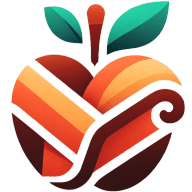The global food industry is witnessing a revolution, driven by emerging food startups and ventures. These innovative enterprises are redefining the way we grow, process, and consume food. This blog post delves into the world of these startups, exploring their innovative approaches, challenges, and potential impact on the food industry.
The Dawn of Food Startups
The food industry is a vast, complex network that feeds billions of people every day. However, it has been largely traditional and resistant to change. That is, until recently. A new wave of food startups is disrupting this industry, bringing fresh ideas and innovative solutions to the table.
These startups are not just about creating new food products. They are about reimagining the entire food chain, from farm to fork. They are leveraging technology, data, and innovative business models to address some of the biggest challenges in the food industry.
From reducing food waste to improving nutrition, these startups are tackling a wide range of issues. They are also creating new opportunities for farmers, food processors, and consumers. In the process, they are reshaping the food industry and setting new trends.
The Innovations Driving Food Startups
So, what's driving these food startups? The answer lies in a combination of factors, including technological advancements, changing consumer preferences, and increasing awareness about sustainability.
Technology is playing a crucial role in the rise of food startups. From AI and machine learning to blockchain and IoT, startups are using cutting-edge technologies to improve efficiency, reduce waste, and enhance food safety.
Changing consumer preferences are another major driver. Today's consumers are more health-conscious and environmentally aware. They are looking for fresh, nutritious, and sustainably produced food. Food startups are catering to these demands by offering innovative products and services.
Finally, there's the growing awareness about sustainability. The food industry is a major contributor to climate change and environmental degradation. Food startups are addressing these issues by promoting sustainable farming practices, reducing food waste, and creating plant-based alternatives to meat.
The Challenges Facing Food Startups
Despite their potential, food startups face several challenges. These include regulatory hurdles, high operational costs, and the need for consumer acceptance.
Regulatory hurdles can be a major obstacle for food startups. The food industry is heavily regulated, with strict standards for safety, quality, and labeling. Navigating these regulations can be complex and time-consuming, especially for startups with limited resources.
High operational costs are another challenge. From sourcing ingredients to manufacturing and distribution, running a food startup can be expensive. Startups need to find ways to reduce costs without compromising on quality or sustainability.
Finally, there's the challenge of consumer acceptance. While consumers are becoming more open to new food products and technologies, they can also be skeptical. Food startups need to build trust and convince consumers about the benefits of their products.
The Impact of Food Startups
Despite these challenges, food startups are making a significant impact. They are not only creating new products and services but also driving change in the food industry.
One of the key impacts of food startups is the promotion of sustainability. By reducing food waste, promoting sustainable farming practices, and creating plant-based alternatives, these startups are helping to reduce the environmental footprint of the food industry.
Food startups are also improving nutrition. They are creating healthier food options, from fortified foods to personalized nutrition plans. This is particularly important in a world where malnutrition and obesity are major health issues.
Finally, food startups are creating new opportunities for farmers and food processors. They are providing them with access to technology, data, and markets, helping them to improve productivity and profitability.
The Future of Food Startups
The future of food startups looks promising. With the continued advancement of technology and growing consumer demand for sustainable and nutritious food, these startups are poised for growth.
One of the key trends to watch is the rise of personalized nutrition. As consumers become more health-conscious, they are looking for food products that cater to their individual nutritional needs. Food startups are leveraging data and technology to meet this demand.
Another trend is the growth of plant-based foods. With the increasing awareness about the environmental impact of meat production, more and more consumers are turning to plant-based alternatives. Food startups are at the forefront of this trend, creating innovative and tasty plant-based products.
Finally, there's the potential for food startups to play a key role in addressing global food security. By improving efficiency and reducing waste, these startups can help to feed a growing global population in a sustainable way.
Conclusion
The rise of food startups is a testament to the power of innovation and entrepreneurship. Despite the challenges, these startups are disrupting the food industry and creating a more sustainable and nutritious food system.
While the journey is not easy, the potential rewards are immense. For entrepreneurs, investors, and consumers alike, the world of food startups offers exciting opportunities and a taste of the future.
Wrapping Up the Exploration of Emerging Food Startups and Ventures
The emergence of food startups and ventures is a fascinating development in the global food industry. These innovative enterprises are not just creating new products, but also addressing some of the biggest challenges in the food industry. Despite the hurdles, their impact is undeniable and their future looks promising. As we continue to explore this exciting landscape, one thing is clear: the food industry will never be the same again.

